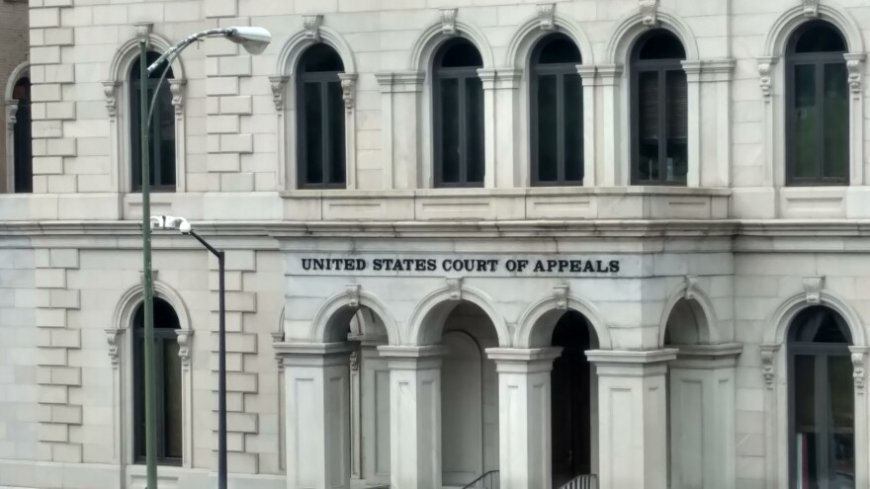Appeals Court Dismisses $500M Fraud Penalty Against Trump: What It Means for Ongoing Cases
A federal appeals court dismisses Donald Trump’s $500M fraud penalty, reshaping his legal and political battles. What it means for ongoing cases.

In a landmark ruling, a federal appeals court has dismissed the $500 million fraud penalty levied against President Donald Trump, dramatically reshaping the trajectory of his ongoing legal battles. The decision, handed down on Friday evening, not only removes one of the most substantial financial threats facing Trump but also sets the stage for fresh political and legal debates as the 2024 election aftermath continues to reverberate across the United States.
The Court’s Decision: Breaking Down the Ruling
The ruling came from the United States Court of Appeals for the Second Circuit, which found that the earlier penalty imposed in 2023 was “disproportionate” and lacked sufficient legal basis under federal fraud statutes. Judges cited inconsistencies in how the damages were calculated, particularly regarding projected financial losses from Trump’s business dealings in New York real estate.
Court documents reveal that while some misrepresentations in asset valuations were proven, prosecutors failed to demonstrate a direct causal link between those claims and the alleged $500 million in investor losses.
In its opinion, the court wrote:
“While the defendant’s representations may have been misleading, the record does not establish losses in the amounts claimed. Remedies must be consistent with both statutory limitations and constitutional safeguards.”
This ruling effectively vacates the largest single financial penalty ever threatened against a U.S. president in a civil fraud matter.
Trump’s Response: A Victory Lap
Within hours of the ruling, Trump addressed supporters in a speech from Bedminster, New Jersey, calling the dismissal “a total vindication” and accusing prosecutors of mounting what he described as a politically motivated campaign.
“This case was always about politics, not facts,” Trump declared. “The American people see through it, and today, the courts agreed.”
Trump’s legal team also released a statement praising the decision as a “milestone in restoring faith in the judicial system” while cautioning that several other cases remain unresolved.
Ripple Effects: What This Means for Other Legal Battles
While the dismissal lifts a heavy financial burden, Trump is still entangled in a series of ongoing legal challenges:
-
Election Interference Probes – Trump continues to face investigations into alleged efforts to overturn results in key swing states.
-
Class Action Suits – Several investor groups are pursuing separate class actions based on similar allegations of misrepresentation.
-
Congressional Scrutiny – Lawmakers have already scheduled hearings to review whether the appeals court ruling will impact future regulatory frameworks for real estate valuations.
Legal analysts caution that while the ruling narrows the scope of Trump’s liabilities, it does not shield him from other pending cases.
Timeline of the Case
-
March 2023 – A federal judge in New York imposes a $500M civil fraud penalty on Trump.
-
June 2023 – Trump’s legal team files an appeal, citing miscalculations in damages.
-
October 2024 – Oral arguments heard before the Second Circuit, with heavy media coverage.
-
August 22, 2025 – Appeals court officially dismisses the penalty, citing insufficient legal grounds.
This timeline highlights how the case stretched across two election cycles, underscoring its political and legal weight.
Expert Predictions: What Comes Next
Legal experts suggest that while Trump’s financial outlook improves dramatically, the political implications could cut both ways.
Professor Laura Jennings, a constitutional law scholar at Georgetown University, noted:
“This ruling provides Trump with a powerful narrative heading into the next election cycle—he can now claim judicial vindication. However, the fact that fraud was acknowledged, even without penalty, keeps the shadow of misconduct alive.”
Meanwhile, financial analysts predict a stabilization in Trump Organization’s real estate partnerships, as creditors who had been hesitant amid the legal uncertainty may now resume operations.
Historical Significance: Comparing Presidential Legal Battles
The ruling places Trump in a unique historical context. While other U.S. presidents, including Richard Nixon and Bill Clinton, faced legal scrutiny, none were ever subject to a civil fraud penalty of this magnitude.
By overturning the $500 million figure, the appeals court ruling could set precedent for how courts handle financial penalties against political figures, especially when claims of political motivation intersect with economic damages.
The Broader Diplomatic Context
Interestingly, the ruling also arrives at a time of heightened U.S.–Russia tensions, with President Vladimir Putin making overtures about “improved relations” despite ongoing tariffs imposed by the Trump administration. Some analysts believe the dismissal strengthens Trump’s domestic position, giving him more leverage in upcoming foreign policy negotiations.
Final Takeaway
The appeals court’s dismissal of the $500 million fraud penalty against Donald Trump marks a historic turning point in the intersection of law, politics, and finance. While the ruling relieves him of a crushing financial burden, it leaves unresolved questions about transparency, accountability, and the ongoing legal cloud surrounding his presidency.
As the U.S. braces for more hearings, investigations, and potential summits, one thing is certain: this ruling will reverberate across legal, political, and economic landscapes for years to come.








